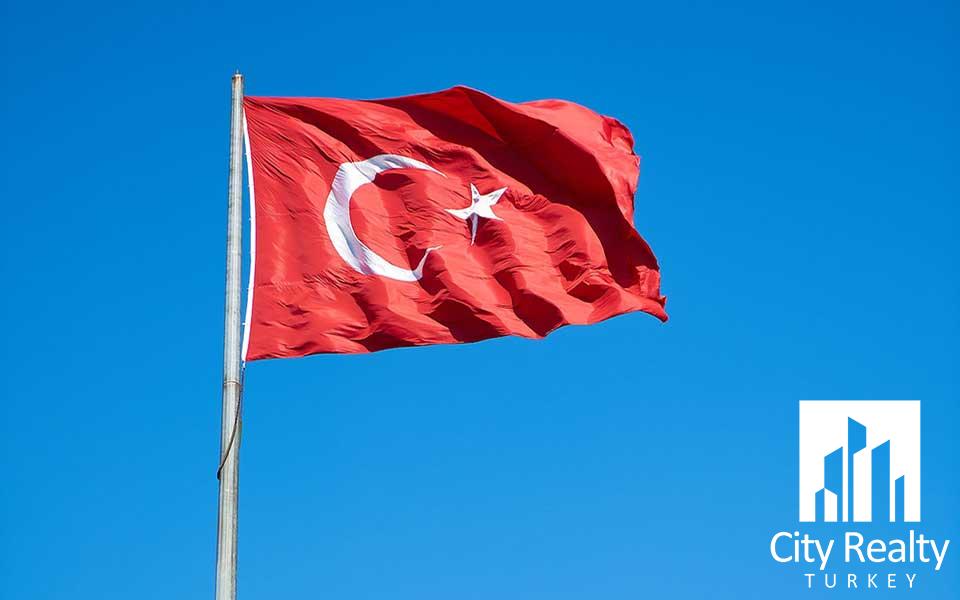What is the history of cultural diversity in Turkey?
What was the policy of Turkey on the issue of tolerance and cultural diversity during the past decades?
What is the Turkish government’s recent view about the issue of tolerance and cultural diversity?
What are the different domains around tolerance and cultural diversity discourse that Turkey has experienced up to now?
Which events affecT Turkey’s policy and society through tolerance and cultural diversity discourse?
In this article, the writer aims to explore tolerance and cultural diversity in Turkey from the past to now and brings a complete overview of Turkish society and policy about carrying the issue.
As many people in recent years are interested in buying property for sale in Istanbul or other cities in Turkey, knowing about the culture and diversity tolerance is a big issue.
Also, the writer defines famous diverse domains in terms of tolerance and cultural diversity discourse and tries to explain Turkey’s evolution according to these domains. Moreover, the CityRealtyTurkey tries to pass information about significant events that had a conspicuous effect on Turkey’s turning point about the tolerance and cultural diversity discourses.
Turkish Tolerance and Cultural Diversity in Turkey Compared to Other Countries
According to a lecture given by Will Kymlicka in 2003 and published at Istanbul Bilgi University, Turkish tolerance, and cultural diversity discourses were comparable with Eastern European countries.
The interesting issue in his lecture is debating the minority cultural rights in terms of security and justice. In the East, the term security is the main goal, and they aim to be sure the minority culture is not a threat to the existence or territorial integrity of the country.
In contrast, justice, the main domain term in the west, prepares fair accommodation for both minority and majority culture diversities.
Considering justice for minority cultural groups brings the right to self-government. As opposed to western countries, self-government is an opening threat to territory.
The main reason to resist the self-government of minority cultures and following threatening considerations is the possibility of collaboration with neighboring countries.
Compression of these two contemplations: justice and fairness, on the one hand, and security and loyalty, on the other hand, revealed the most public favorite idea sharply turns to justice and fairness.
The western model based on justice and fairness provides the major minorities concerns in three folds: territorial autonomy, speaking and writing in their modern language, and institutional completeness. These particularities of the western model act well in adopting candidate countries to the European Union.
At the beginning of the nineteenth century, only Switzerland and Canada joined the combination of territorial autonomy and the right to speak and write in modern language for minority cultural groups or sub-state national groups.
After That, most countries, which were willing toward democracy, and sizable sub-state nationalist movements, joined the justice and fair track to reach the majority concerns of minority cultural groups.
With regard Kymlicka”s investigation, what happened in East and central Europe can be linked to Turkey from a security and justice point of view and the country’s evolution toward democracy led security view to the idea of justice for the subcultural union.
Turkey displayed typical similarities with East European countries regarding management and direction of minority and sub-state cultural groups.
The country gives priority to carrying a security view in treating cultural diversity discourse. Turkey has deep roots in history in investing in national security; therefore, subcultural groups are considered a threat to autonomous territorial existence and national security.
Even though different sub-cultures and sub-state nations enclosed Turkey, this view was the dominant idea.

How Has Security Discourse Changed to Justice Discourse in Turkey?
The main phenomenon in turning Turkey from security to justice was the country’s goal to integrate into the European Union. The prime situation for integration into the European Union is the importance of unity in diversity rather than unity.
Undoubtedly the Helsinki Summit EU played out a historical turning point in the country’s movement from security to justice.
Kymlicka and many other experts believe the Helsinki Summit EU was decisive and essential to motivating Turkey to turn sharply from conservative views in all aspects and tolerance and cultural diversity discourses.
In other words, the Helsinki Summit EU could be defined as a threshold of radical democracy for Turkey and prompted distancing from its strong-rooted conservatism and cold-war position.
The republic’s beginning in the early 1920 was the starting point in the classification of security and justice discourse in evaluating political, cultural, and ethnic diversity.
Different Philosophies in Diversities
Diversity is a new word extracted from political philosophies among developed countries and expanded to other countries willing to join democratic countries.
Diversity recently conveys expanded meaning regarding religious, cultural, political, and ethnic attributes, a byproduct of globalization, causing a prime movement beyond the person or group to the ethnoscape.
These days Diversity. Which links to human rights and democracy ideology, creates an important challenge for international and supranational entities such as international and European Union organizations.
After the Helsinki summit in 1999, various ethnic groups in Turkey were inclined to consider diversity in terms of discourse/ideology. Also, after the Helsinki summit, the European Union preferred to apply diversity in unity discourse.
Following the writer brings an evolution in diversity definition that greatly affects Turkey ideology.
Unity in Diversity
Will Kymlika believed in liberal democratic principles as a basis for cohesive social structure or unity. Moreover, unity must be recognized by communitarian rights for cultural minorities means diversity.
In other words, unity in diversity guarantees a liberal democratic society. According to his notion, diversity does not contradict liberal policy; in contrast, diversity plays out as a pivotal for enabling individual freedom for the members of the minority group in question.
Unity over Diversity
Unity over diversity at first was proposed by Brian Barry, who was concerned about the cleavages of multicultural views. He argued respect for diversity might threaten the unity necessary for equal distribution among all citizens.
He not only talked about economic equality rights, but also he was concerned about distributing entire equal rights. Brian Barry criticized Will Kymlika about sectarian religious groups.
According to Brian Barry’s idea, it is not possible to guarantee specific group rights unless the state stays loyal to being impartial and neutral. His philosophy lies in majority rules concerning individual rights with a view beyond the principles of group-centered- multiculturalism, which exactly translated to unity or diversity.
Together in Difference
This theory was proposed by Iris Marion Young, a communitarian who believes that unity is a necessary criterion for a modern pluralistic society. But the core of her theory is politics of difference.
The pivotal part of her recent theory is recognizing the varieties of culture and social differentiation in a region and treating them respectfully.
The worthy achievement of this theory is the residents in a region, instead of sharing the same basic ideas, prepare to concentrate on reaching fundamental agreements and coalitions to solve the political problems.
All definitions above are political posturing concerning cultural diversity in the nation-state context. But the prime problem is, none of these theories and definitions are an exhaustive umbrella coverage for all concerned about cultural, religious, ethnic, and national contexts.
Also, there is not sufficient discussion in the European Union on managing a wide diversity in different contexts. However, recent scenarios are in hand to get acceptable justice in the future. These scenarios mostly circulated unity in diversity, diversity, and European citizenship.
These concepts in the west reflect repercussions in Turkey. Following reflection on diversity concepts in Turkey paved the way for cultural and ethnic diversity policy.
2002 Election Was a Path for Raising Justice and Development Party
In November 2002 AKP party won the election and took office while struggling with numerous dilemmas. These dilemmas were from the internal Turkey crisis, such as poverty and inequality, to overseas difficulties such as the Cyprus issue and Iraq tensions.
More than this, the biggest problem the AKP party combated with the concept of stereotypical representation and reception of APK as a radical Islamic party both in Turkey and abroad.
After a while, AKP elites induced the universe to recognize their government as a new organization that set goals to access secularism and EU standards.
The elite of AKP strickly departed from anti-Semitic, Islamic, and exclusionist traditional views and shifted to affiliate benign inclusive nationalism, which introduced itself as, reflective, democratic, right-based, and free-market oriented.
The prime winning card of the AKP party was the organization aimed to embrace all segments of Turkish society, which seemed a minefield for rivals who couldn’t get the trust of the Turkish nation.
There are numerous reasons why the AKP party is successful in Turkish society. Still, the most worthwhile item is conceiving the importance of tolerance and cultural diversity in turkey.
Undoubtedly, the accession of AKP is considered one of the events that helped turkey society take essential steps toward democracy and eliminate the traditional exclusive policy.

Post Helsinki Events a Time for Moderate Turn Toward Democracy
The European Union Copenhagen political criteria held at the EU meeting in Copenhagen in 1993 asserted the main qualification for affiliation to the EU is applying complete democracy in the current rules of a country.
These criteria are defined as implications of human rights without regard to gender, religion, ethnicity, and the support of minorities.
In Copenhagen, 1999, at an EU meeting, Turkey was nominated as one of the EU members under the same conditions as other candidates.
Although this claim of the EU had hurt national feelings especially related to minorities, the post-Helsinki period provided an opportunity for Turkey to create an optimistic and dynamic condition to solve ethnic, religious, and cultural minority issues in the country.
The most prosperous victory after the Helsinki process is intensifying the notion of diversity discourse rather than diversity-security.
The post-Helsinki period was considered an escalator toward democracy by unity in diverse points of view and prepared a path to diverse discourse.
In conclusion, Turkey has deep roots in history and, due to its special geopolitics location and beautiful nature, was the hub of many powerful empires.
Istanbul is the only city in the world that straddles the intersection of Europe and Asia. Numerous nations, from the Byzantine empire to the Ottomans king, want to have their authority in this unique region. Therefore unity ties with security .
In addition , exclusive policy had been considered a guarantee for the existence of the government and nation.
But as time passed, Turkish policy and the public desire to access open marketing, which was not possible without the implementation of full democracy, the diversity-security notion was replaced with a diversity-justice perspective.
